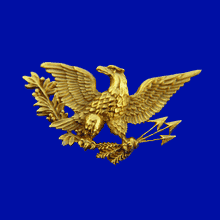"In certain countries of Europe the natives consider themselves as a kind of settlers, indifferent to the fate of the spot upon which they live. The greatest changes are effected without their concurrence and (unless chance may have apprised them of the event) without their knowledge; nay more, the citizen is unconcerned as to the condition of his village, the police of his street, the repairs of the church or of the parsonage; for he looks upon all these things as unconnected with himself, and as the property of a powerful stranger whom he calls the Government. He has only a life-interest in these possessions, and he entertains no notions of ownership or of improvement.
"This want of interest in his own affairs goes so far that, if his own safety or that of his children is endangered, instead of trying to avert the peril, he will fold his arms, and wait till the nation comes to his assistance. This same individual, who has so completely sacrificed his own free will, has no natural propensity to obedience; he cowers, it is true, before the pettiest officer; but he braves the law with the spirit of a conquered foe as soon as its superior force is removed: his oscillations between servitude and license are perpetual.
"When a nation has arrived at this state it must either change its customs and its laws or perish: the source of public virtue is dry, and, though it may contain subjects, the race of citizens is extinct. Such communities are a natural prey to foreign conquests, and if they do not disappear from the scene of life, it is because they are surrounded by other nations similar or inferior to themselves: it is because the instinctive feeling of their country's claims still exists in their hearts; and because an involuntary pride in the name it bears, or a vague reminiscence of its bygone fame, suffices to give them the impulse of self-preservation."
Tuesday, March 23, 2010
Subscribe to:
Post Comments (Atom)




No comments:
Post a Comment